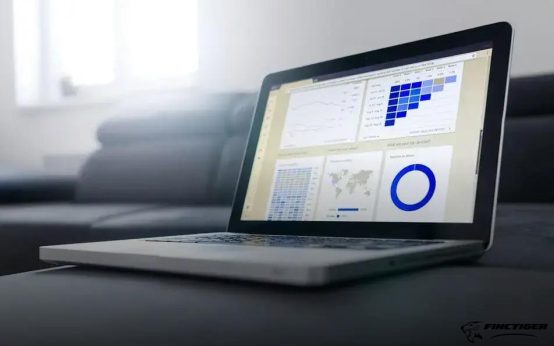Deciding between renting and buying a home is a crucial financial decision. Understanding the pros and cons of each can help you align this choice with your lifestyle and long-term goals. Explore the financial implications, lifestyle considerations, future prospects, and how market conditions can influence your decision. This guide provides a deep dive into both options so you can make an informed decision on what suits you best.
The Financial Aspect
When determining whether to rent or buy a home, the financial aspect plays a critical role. Purchasing a home generally involves a range of upfront costs such as down payments, closing fees, and potential property renovations. For those buying, these costs may feel daunting initially, but over time, they contribute towards equity building, which can be advantageous in terms of asset appreciation.
On the other hand, renting often requires less immediate financial commitment, usually limited to a security deposit and the first month’s rent. Renters benefit from not shouldering property taxes or costly repairs, as these responsibilities fall on the property owner. Thus, renting may seem more financially attractive for individuals needing flexibility or unable to commit substantial capital.
Another important factor is the monthly cash flow. Mortgage payments for buyers might be consistent but fluctuating interest rates can alter long-term affordability. Renters, contrastingly, may experience differences in rental rates annually, often outlined within lease agreements. It is essential to compare potential monthly expenses between renting and buying, considering all hidden costs like homeowners insurance or renter’s insurance.
The impact of tax benefits is also notable. Homeowners may reap certain tax deductions on mortgage interest and property taxes, making the ownership more appealing financially. Renters do not receive such tax benefits, which could influence the long-term savings outlook.
Lastly, one should consider the impact of inflation. While property values and home costs rise over time, having a fixed mortgage rate may outweigh renting costs, which are susceptible to increments exceeding inflation. Buying could provide a financial hedge against future inflation fluctuations, securing long-term housing stability.
Lifestyle Considerations

When deciding whether to rent or buy a home, lifestyle considerations play a critical role. Both options offer unique benefits that align with different life stages and personal priorities. Renting often provides more flexibility and mobility, perfect for individuals who enjoy exploring new neighborhoods or those whose careers require frequent relocation. On the other hand, buying a home can offer a greater sense of stability and security, often appealing to those looking to settle in a community long-term.
Consider your lifestyle needs. Do you prefer city living with various amenities at your doorstep, or do you value privacy and larger living spaces typically offered in suburban homeownership? Renting might also mean less responsibility for maintenance and repairs, providing peace of mind for those with busy schedules or less inclination towards home improvement tasks.
On the flip side, owning a home can allow for personalization and renovation at will, creating a living environment uniquely tailored to your preferences. Furthermore, assess how your current lifestyle matches the financial stability and commitment associated with buying versus the flexibility of renting. Each path significantly impacts your day-to-day living and life goals.
Long-Term Prospects
When considering the long-term prospects of renting versus buying a home, it’s essential to look at several factors, such as potential for appreciation, stability, and future financial security. Buying a home can be an investment opportunity, potentially leading to value appreciation over time. However, this depends heavily on the housing market and location.
Owning a property provides stability, as it frees from increasing rents and the potential risks of lease termination. Homeowners can gradually build equity, a form of savings, as they pay off their mortgage. This equity can be a financial asset that offers security for future needs or investment opportunities.
In contrast, renting allows more
flexibility
in terms of relocating for job opportunities or lifestyle changes without the financial burden of selling a house. For those uncertain about their future plans or career paths, this flexibility can be invaluable.
Long-term market conditions should also be considered. Housing prices can be unpredictable; therefore, while buying can be a fruitful investment, it can also lead to losses if the market declines. On the other hand, renters bypass this risk but do not gain from market appreciation either.
Ultimately, the decision between renting and buying should consider not only current financial capabilities but future plans and how each option aligns with long-term goals. Weighing these factors helps in making informed decisions that align with individual priorities and future aspirations.
Market Conditions Influence

The market conditions greatly influence the decision-making process when it comes to renting versus buying a home. In a buyer’s market, for instance, there is a high inventory of homes, leading to decreased prices and favorable terms for buyers. Conversely, a seller’s market may drive up home prices due to high demand and limited inventory, potentially making buying less attractive.
For renters, the market conditions can also affect rental rates. In economic downturns or when the housing market is flooded with homes, rental rates might decline, making renting an affordable option. In contrast, when the housing demand overshadows supply, rental prices might surge, aligning closer to mortgage payments.
Additionally, interest rates play a crucial role in the housing market dynamics. Lower interest rates generally make purchasing a home more appealing as mortgage payments become more manageable, adding to the allure over renting. Conversely, higher rates might deter potential buyers, thereby swaying them towards renting.
Moreover, regional economic conditions can significantly affect the appeal of renting versus buying. In rapidly growing urban areas, property values might see quick appreciation, favoring buyers. In contrast, areas with stagnant growth might offer more attractive rental options.





